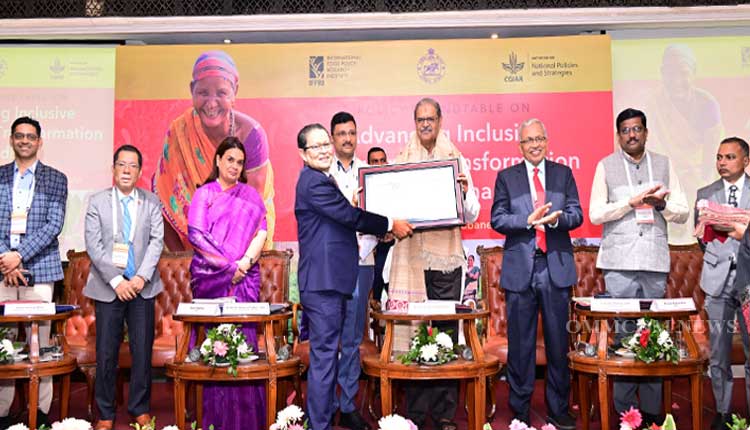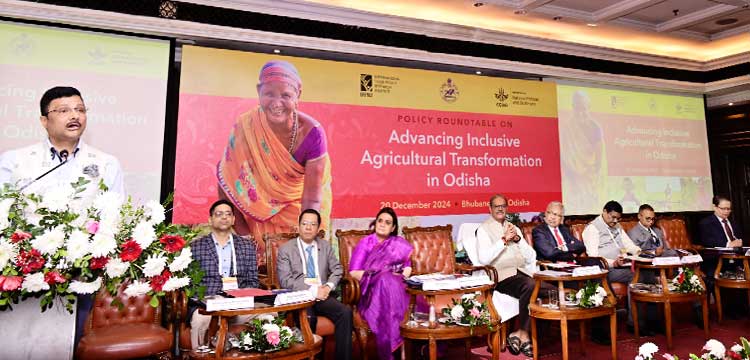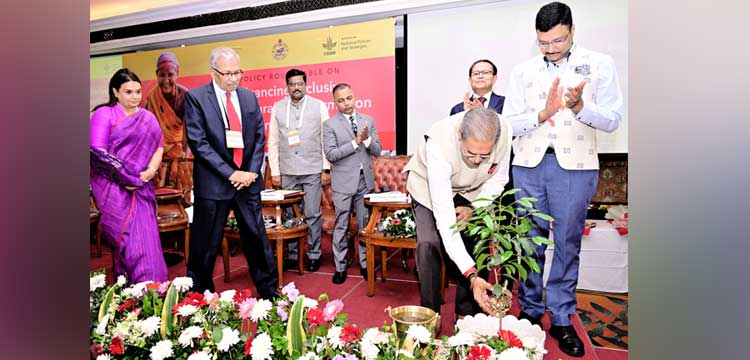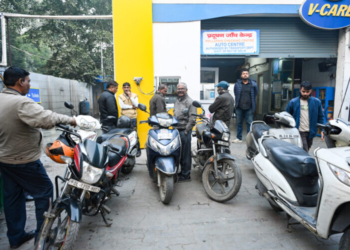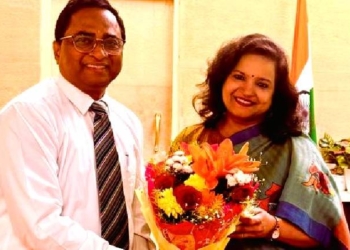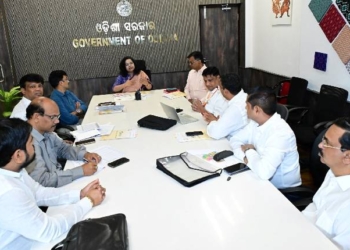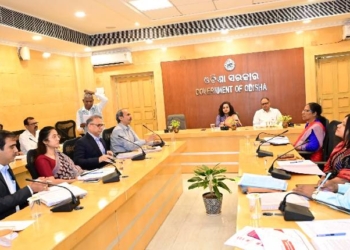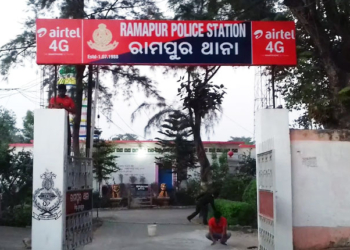Bhubaneswar: The Odisha government successfully hosted a Policy Roundtable in Bhubaneswar, which highlighted Odisha’s journey toward sustainable development in the agriculture sector.
The roundtable, which was hosted in collaboration with the International Food Policy Research Institute (IFPRI) and the CGIAR Initiative on National Policies and Strategies (NPS), provided a platform for regional collaboration, emphasizing opportunities for South-South knowledge exchange.
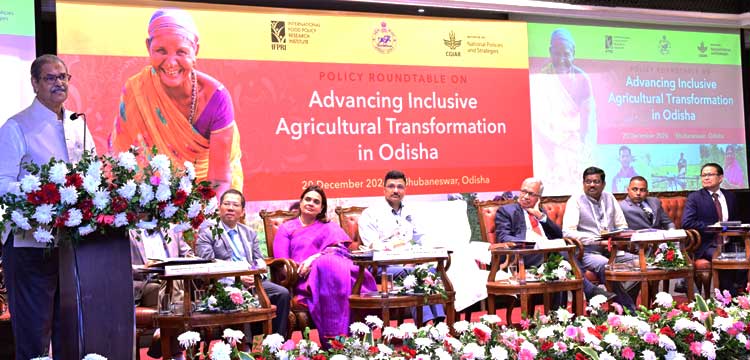 Over 100 participants, including government officials, researchers, development practitioners, and international experts, convened together in Bhubaneswar to share insights into addressing common challenges across diverse agricultural and environmental contexts. Themed “Advancing Inclusive Agricultural Transformation in Odisha”, the event underscored Odisha’s leadership in leveraging inclusive approaches to agricultural transformation and its potential as a model for similar countries and regions globally.
Over 100 participants, including government officials, researchers, development practitioners, and international experts, convened together in Bhubaneswar to share insights into addressing common challenges across diverse agricultural and environmental contexts. Themed “Advancing Inclusive Agricultural Transformation in Odisha”, the event underscored Odisha’s leadership in leveraging inclusive approaches to agricultural transformation and its potential as a model for similar countries and regions globally.
Deputy Chief Minister KV Singh Deo, while addressing the gathering as Chief Guest, emphasized Odisha’s commitment to equitable agricultural growth.
“Odisha is poised to lead the way in inclusive and sustainable agricultural reforms. The ideas and collaborations fostered today will shape a resilient agricultural future where every farmer can thrive. Market linkages are crucial for empowering smallholder farmers. Through Farmer Producer Organizations (FPOs), we are ensuring that farmers gain better access to equitable markets, enabling them to secure fair prices and improve their livelihoods,” Singh Deo said.
Dr. Arabinda Kumar Padhee, Principal Secretary, Department of Agriculture and Farmers’ Empowerment, reiterated that “Odisha’s agriculture sector stands at the forefront of innovation and inclusivity and sustainability. As we deliberate on strategies today, let us focus on scaling these successes and ensuring that every farmer benefits from our shared vision. Together, we can make Odisha a model state for sustainable and inclusive agricultural growth.”
The roundtable was structured around five critical themes, each addressing key areas for inclusive agricultural growth:
- Inclusive Agricultural Transformation: Panelists discussed frameworks and validated indicators tailored to Odisha’s agricultural context.
- Enhancing Market Access: Deliberations focused on connecting smallholder farmers to equitable markets through innovations like geospatial data and value chain optimization.
- Strengthening Climate Resilience: Participants explored adaptive strategies such as climate-smart agriculture, soil and water management, and crop diversification to address climate risks.
- Empowering Farmer Producer Organizations (FPOs): Discussions highlighted structural reforms and best practices to enhance the sustainability of FPOs.
- Advancing Data Integrity: The importance of real-time data systems for effective decision-making and program evaluation was underscored.
Dr. Shahidur Rashid, South Asia Director at IFPRI, remarked, “This roundtable underscores the potential of evidence-based strategies to address challenges and harness opportunities for inclusive agricultural growth in Odisha. The discussions today will set benchmarks for the region.”
The event committed to establishing an Advisory Group comprising representatives from the Government of Odisha, IFPRI, and technical partners. This group will refine and implement IAT indicators, ensuring their alignment with the state’s long-term development goals.
Suresh Kumar Vashishth, Principal Secretary, Fisheries and Animal Resources Development Department, Odisha noted, “Inclusive Agricultural Transformation is integral to Odisha’s vision of sustainable development. The insights and recommendations from this roundtable will pave the way for actionable outcomes.”
Prem Chandra Chaudhary, Director of Agriculture and Farmer’s Empowerment, Odisha, emphasized that, “Odisha’s agriculture system is aiming to transform to a resilient, equitable and market-linked system and this policy roundtable will provide a platform for fostering collaboration and exchange of knowledge.”
Dr. Monica Priyadarshini, Director of Mission Shakti, highlighted “Mission Shakti has been a transformative force in promoting women’s empowerment. Women’s collectives are not only strengthening rural livelihoods but also driving agricultural growth, making them key agents of inclusive and sustainable development.”
The roundtable set a precedent for collaborative discussions and knowledge-sharing, highlighting Odisha’s role in creating a sustainable and equitable agricultural future.




